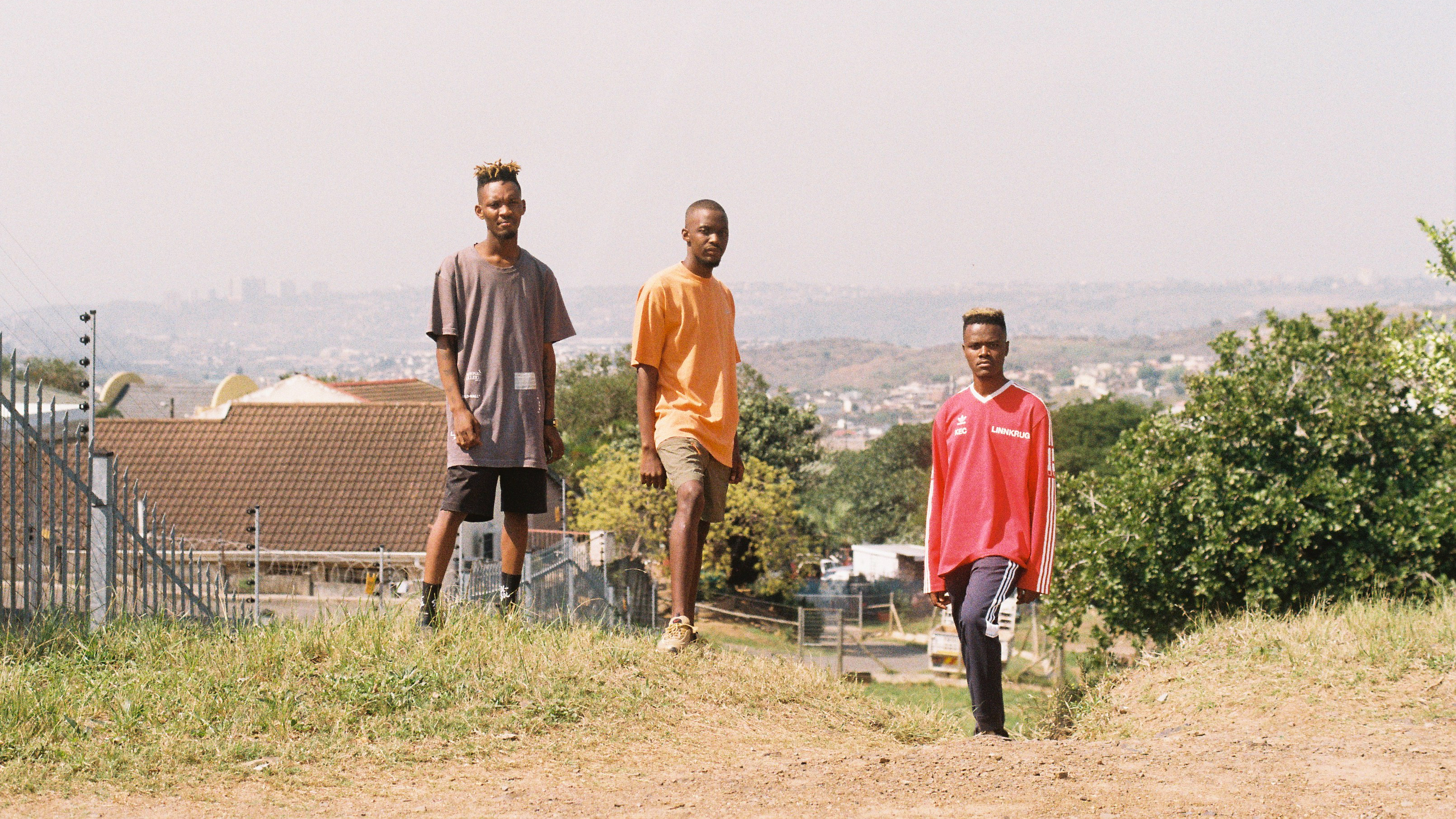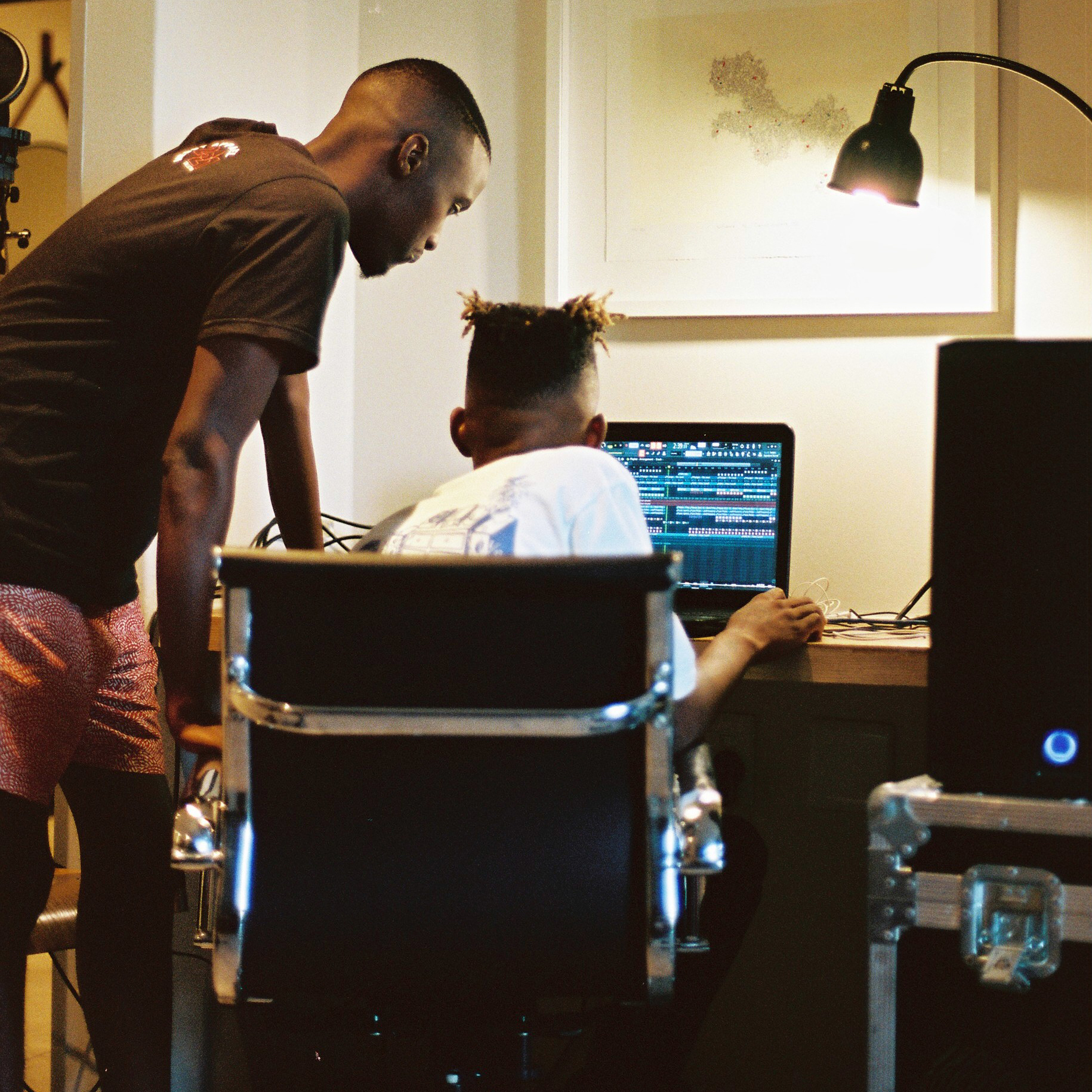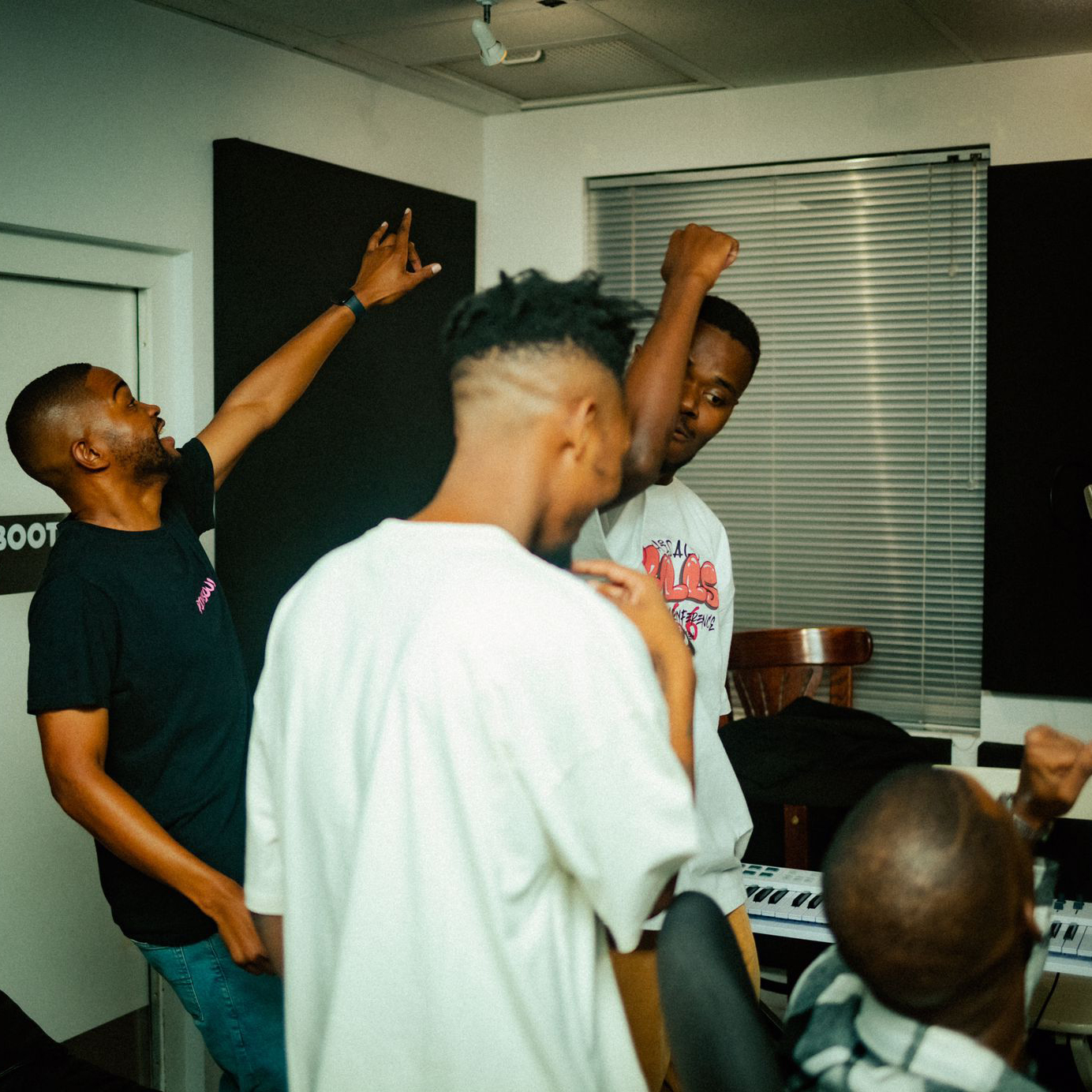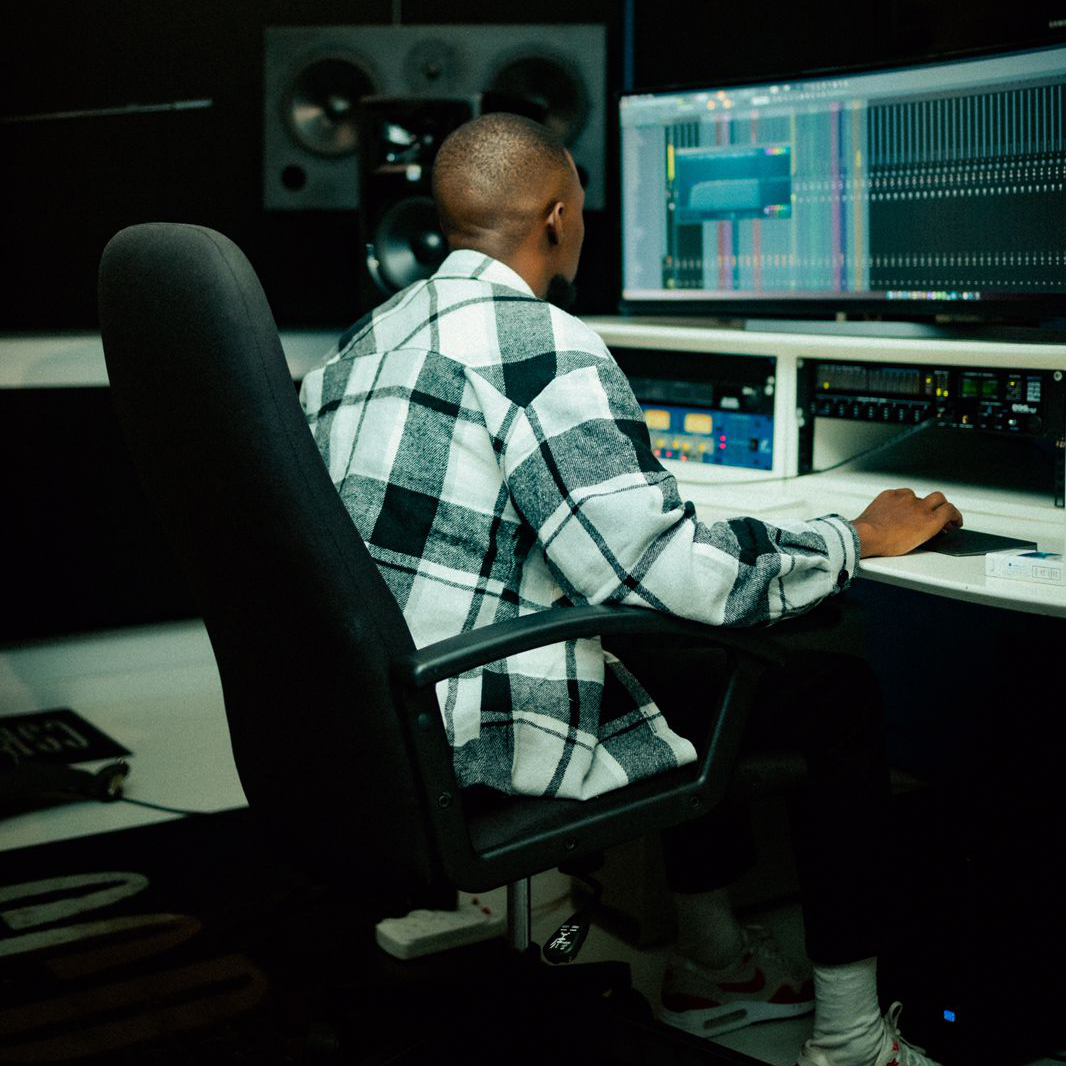Omagoqa: "Percussion and bass. Those are the elements that make gqom music"
Omagoqa’s latest EP channels the sound of Durban’s underground across eleven unruly productions. We find out more about how it was made

Ten years ago, if you'd asked an electronic music fan where the next wave of innovation in dance music was likely to originate, they might have suggested London, pointing to the myriad variations of future-facing, bass-heavy sounds that emerged from dubstep’s smoky haze in the late ‘00s.
These days, though, you’re far likelier to hear new sounds coming out of the clubs of South Africa than a sweaty basement in Shoreditch. Over the past decade, styles like amapiano, shangaan and afrohouse have spilled out of South Africa’s townships and on to the global stage, as Durban and Cape Town have supplanted London and Berlin as the hotspots for invention and creativity in the electronic music world.
Perhaps the most influential style to come out of South Africa has been gqom, a hard-hitting, minimal take on house music that substitutes the genre’s predictable 4/4 pulse for a syncopated, asymmetrical thump, typically anchored by wall-shaking bass and adorned with synths and samples spliced together in FL Studio.

“Percussion and bass. Those are the elements that make gqom music,” gqom trio Omagoqa tell us when we ask what makes their tracks tick. Hailing from Durban, Omagoqa is made up of Ma_A (Andile Mazibuko), KB (Franco Makhathini) and Chase (Njabulo Sibiya), three producers that specialize in what they’re calling ‘uThayela’, a raw, invigorating take on the genre that translates literally as ‘corrugated iron’.
Omagoqa’s latest EP, a deluxe version of their 2022 release Back to Ebombeni, channels the sound of Durban’s underground across eleven unruly productions, fusing gqom’s relentless rhythms with potent basslines and razor-sharp sound design. We caught up with Omagoqa to find out more about how they make their music.
When did you start making music, and how did you first get started?
“We started making music individually in 2012, then went on to form the collective Unticipated Soundz in 2014, where we started producing together. A couple of years later we left the bigger collective and formed Omagoqa. A friend of ours owned a laptop with a cracked version of FL Studio, and that is pretty much where our musical journey began.
Get the MusicRadar Newsletter
Want all the hottest music and gear news, reviews, deals, features and more, direct to your inbox? Sign up here.
We are more comfortable using plugins because we feel like they give us more range and flexibility
“During that time house in South Africa was probably the leading genre when it came to dance music. That's what we were exposed to, so that's the music we started experimenting with. We got a lot of inspiration from the likes of Da Capo and the late Dukesoul. DJ Lag was also making some really interesting music in South Africa, and we got really inspired by his leftfield approach. That’s probably why we ended up producing gqom.”
Tell us about your studio/set-up?
“Honestly, our studio set-up has never changed. We have a home studio and are still working on a PC and FL Studio which is exactly what we started off with. We often visit other studios in and around Johannesburg when we are working on collaborative projects with other artists, just because our apartment can’t accommodate a lot of people and we also feel like a bigger studio setup allows for everyone to be able to bring their A-game to the session.

“As a collective we don’t use any hardware, unless we are collaborating with a specific artist that likes to work that way. We are more comfortable using plugins because we feel like they give us more range and flexibility for us to be able to express ourselves fully. Exploring a world where we can use both hardware and plugins is definitely something we want to master in the near future as it adds an extra layer or dynamic to our music.”
What are your favourite plugins?
“Our favourite plugins are GMS, Sakura, Nexus and Sytrus. They’re easy to work with, adjustable and have some dope, different and wild sounds to them. They make experimenting easy for us. Omagoqa is really built on seeing how far we can push the gqom sound without changing what we are known for, in order to stay relevant. These plugins make that a reality for us.”

What DAW do you use, and why did you choose it?
“FL Studio 20. We feel this DAW is easily accessible in terms of functionality because this is pretty much all we’ve been exposed to. The fact that FL is always improving year on year means that we probably won’t need to look for another workstation.”
What one piece of gear in your studio could you not do without, and why?
“Probably our studio monitors. We recently acquired some JBL LSR308 8-inch 2-way monitor speakers, and those have kinda changed our lives. The audio is crisp and clean. They have excellent and clear sound quality at higher volumes. They are also really good value for money with a really generous sweet spot. It’s a shame we can’t travel with them.”
What dream bit of gear would you love to have in your studio?
“We’d love a new PC, the Dell XPS 8950 with a Core i7 processor, 16GB RAM, and 1TB SSD with a Samsung Odyssey G5 34-inch monitor. For an interface, we’d have the Universal Audio Apollo Twin X DUO Heritage Edition. Then we’d have two Pioneer CDJ 3000s and the new Pioneer DJM-A9 mixer.”

When approaching a new track or project, where do you start?
“Our approach differs from time to time based on who starts the project, but generally we all like to start with the kick and bass and then build from there. Once we have a solid progression we then start to explore based on an idea we would have maybe discussed, or something we saw or heard during the day. We really like to experiment and I think that's pretty much for us where the magic happens.
“We don’t really have a formula that we stick to, and often you find where we started is never where we end up. If we were to sum it up, we’d say our approach or starting point to a project starts way before us being in the studio or sitting down to create a track. Things for us start when we're out and about, that's where we gain inspiration.”
If you had to pick one song/album that’s been most influential on your work, what would it be?
“Definitely Kaytranada’s 99.9%. It's very different to the music we make but we really resonate with his production style. He really has an understanding of a number of different genres, which adds to his appeal. His style is very much ‘him’ and he's able to blend hip-hop, R&B, house, and funk into nostalgic yet futuristic sounds. I think what we are drawn to the most is his heavy basslines and interesting drum patterns which is what a lot of our music is made up from.

“He also collaborates with different artists from different musical backgrounds and worlds which is something we are working towards. We’ve recently had a conversation about trying to get Blxckie on one of our tracks. We are also trying to bed down some studio time with Lazarusman and Una Rams and that inspiration has definitely been drawn from how Kaytra approached collaborations.”
What are the most important aspects of production when it comes to making gqom music?
“Percussion and bass. Those are the elements that make gqom music. We are taking this and reimagining things and looking to infuse other elements which is essentially our own new version of the sound.”
What are you currently working on?
“We have a couple of collaborations that we are trying to get over the line. We’ll be touring Europe in June so looking to get some studio time with a couple of artists from that side of the world. We have a lot in the pipeline and just need to bed a few things down.”
Omagoqa’s Back to Ebombeni (Deluxe) is out now on The Other Side Recordings.


Future Music is the number one magazine for today's producers. Packed with technique and technology we'll help you make great new music. All-access artist interviews, in-depth gear reviews, essential production tutorials and much more. Every marvellous monthly edition features reliable reviews of the latest and greatest hardware and software technology and techniques, unparalleled advice, in-depth interviews, sensational free samples and so much more to improve the experience and outcome of your music-making.










